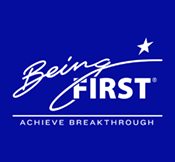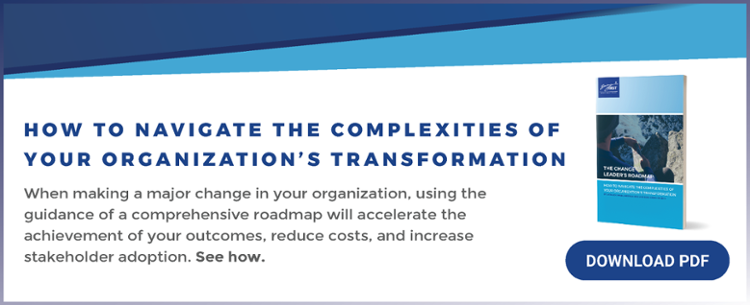Assessing data about change at the beginning of a change initiative, during its execution, and post deployment is standard for most fields supporting change (i.e., change management, project management, continuous improvement, Organization Development, Six Sigma, and Agile).
Many organizational assessments have been developed to help monitor the status of change initiatives and people’s responses to change. Change readiness assessments are common, and you can also assess change impact, Red-Amber-Green Scorecards, change capacity, leadership styles, scope of change, degree of adoption, value of training, change health, and more.
These assessments take a significant amount of time and effort which begs a question: What is the real value they bring to change leaders and to the success of projects? Do they make a difference in how projects are led over time?
Are You Getting the Full ROI from Your Organizational Change Assessments?
We are not proposing NOT using assessments! On the contrary. Every one of these assessments can have a timely purpose during a change process. However, our experience is that once the assessment has been done and the data supposedly reported to leaders, the ROI is not equal to the time and effort spent. Often the information goes undiscussed, or is by-passed, minimized, or handed off without guidance or authority to change anything.
We have observed numerous “status reporting” meetings about the results from such assessments where leaders nod their heads, ask a question or two about why some factor is “red” (or in trouble), and then move on to other topics.
Is your organization getting the full ROI when it comes to the value of assessments? Here are some key questions to consider:
- What difference has the data made in course correcting the change process or plan?
- What are leaders expected to do with the information?
- Do the leaders expect the project team to take on any problem-solving required?
- Do the status reports attend equally to the solution design, stakeholders’ reactions or needs, cultural inhibitors, or factors about the change process such as resources needed, budget overedges, or untenable timelines?
- Do the project managers or change managers feel too constrained to ask for permission to change direction, timing, budget, or the type of leadership support they get?
- Do the leaders, once they have given the go-ahead for the project, mentally wash their hands of it?
- Does the data reveal the true picture, or are the project leads afraid to say how bad things are until it is too late to make corrections?
- Do the change professionals think they are done with their job because they did the assessment and reported its findings?
Make Your Assessments Count
How do you ensure that the data generated from these assessments is driving real leadership consideration, understanding, and required adjustments in the plans for the initiatives?
Leaders and project leads must create a partnership to make value-added use of all change assessment data. Conditions for candor and “blame-free” inquiry are required. This takes meeting time and cannot be squeezed into a 15-minute timeslot on a jam-packed agenda.
It is the responsibility of the change professionals to keep track of the status of change work and to report it. It is the responsibility of the leaders to delve deeply enough into the information to know if a course correction is called for. It is also the responsibility of the leaders to ensure that their organizational or meeting culture supports telling the truth about the status of things without fear or consequence inhibiting that truth.
We see this issue as two-sided.
- The leaders (especially the sponsors of change) must ensure they have a candid picture of how the change process is going so they can provide valid and timely support in any of the areas needed. They cannot wash their hands of the change after hand-off, and must create the conditions and trust that enables project leads to tell it like it is with the expectation that course corrections will be likely. Leaders just nodding that they have heard assessment data is not adequate sponsorship. Inquiry, open discussion, and co-creative problem-solving is required, and they must allow adequate time and attention to do this. If the data points to significant issues, sufficient time must be allocated for resolution.
- The change leads (project managers, change process leaders, project team members or consultants) are responsible for knowing what is happening on all fronts—the effective launch and strategy of the project, the status of a well-tailored solution, the condition of stakeholders who must make the change, and all the factors in the change process that will impact its success. Too often, they report only on progress with the concept or solution design, and gloss over stakeholder, culture, or process issues, if covered at all. And, many times, we hear that they are inhibited to report any problems or “red issues” for fear of seeming incompetent or not on top of their projects.
Data is just data if it does not produce relevant action that will drive a project to a successful and sustained outcome. How would you rate your own experience with the value of assessments? If they are not producing right action, stop spending time on them. If you can ensure the conditions for them to produce meaningful course corrections, take full advantage of them!

